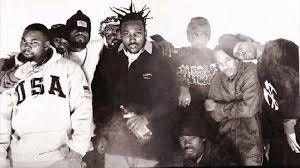Let's talk about money. We all need it, after all even the bible says money answers everything, (Ecclesiastes 10:19). So why is this subject so taboo and such a sore spot for everyone? People want the appearance of having money but no one wants to talk about how much they have or how to keep it. We all hope to attain the highest paying salary as a trophy for success but the truth is it is not how much you make, it is how much you don't spend. I'm an entrepreneur and I'm all about empowerment, but starting a business takes money. The more you have to start, the better your branding, marketing, supplies, in short, everything. I'm on a quest for financial independence. Since I'm on this journey, I decided to share everything I learn along the way.
Consider this the start of a new series...chapter 1 on my journey. Let's start with the definition of financial independence. The state of having sufficient personal wealth to live, without having to work actively for basic necessities. It is the point where you have enough money to live off of the interest earned and/or investment dividends. Once you reach this point, working is an option not a necessity. So how do you reach this point? Well you first have to start with looking at where you are now. This is the elephant in the room. Very few people know where they are on the spectrum of financial independence. The lower end of the spectrum includes being in debt with monthly payments (credit cards, student loans, personal loans, car notes, etc.) and living paycheck to paycheck with very little, if any, money saved to achieving financial independence. Have you ever sat down and calculated how much monthly income and monthly expenses you have? If you haven't you don't know where you are and you won't know what you need to do to get to where you want to be. I implore you to calculate this number. You have to face reality and stop ignoring the elephant in the room. This number will tell you if you need a part-time job or some other means to increase your income because you have more expenses than monthly salary or if you need to figure out what's been drilling a hole in your wallet.
So what brought me to this quest? Where should I begin? One, with everyone talking about the power of the (black) dollar it dawned on me that most people I know are still in survival mode or on the low end of the financial independence spectrum. I began brainstorming how to change this. Which lead me to thinking about my own financial state. I focused on where I am, where I want to be, how to get there and the steps that I have taken to get out of survival mode. Finally, I thought the consumerism mindset of most Americans. I have to admit I do not understand the sense of entitlement everyone has, I mean everyone, all ages, races, genders, etc. How did we get to the point where we feel we deserve everything and need status symbols feel validated and valued? Let me be clear, this isn't a series to tell you what to do or how to think. It is simply me sharing what I learn(ed) along the way because quite frankly I have had some revelations and some moments where I have felt down right dumb. But you don't know what you don't know so I had to forgive myself and move forward.
If you want to take this journey with me your first assignment is to calculate where you are. Write down your net monthly income and subtract your monthly expenses. If you don't have any money left after the necessities (mortgage/rent, utilities, groceries, insurance, gas for transportation) and monthly payments (credit card payments, student loans, personal loans, car note, cell phone, etc.) then you know you have an income problem. If this is the case you either need to find a way to generate more income or cut your expenses. If you do have money left over and you're not financially independent, you know you have a spending problem on those things that are not necessities. So let's start here and calculate your monthly balance to determine if you're operating with a surplus or deficit. Below is an example of single person's monthly budget with a surplus of $239. I'll check back with you to see if you have done your homework.
Net Monthly Income: $3000
Expenses: Mortgage: $1100 Electric Bill: $120 Gas: $35 Water: $30 Cell Phone: $70 Groceries: $250 Car Insurance: $85 Life Insurance: $26 Cable: $70 Internet: $20 Gas for car: $240 Credit Card Payments: $150 Student Loans: $235 Car Note: $330 Total Expenses: $2761
Surplus:$239

